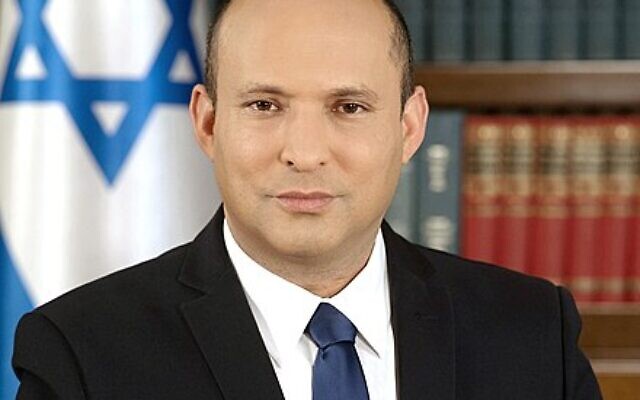Don’t be Surprised if the Election Ends in a Stalemate
Yair Lapid, already a caretaker prime minister, could continue in that role even after the elections.
Although it is way too soon to prognosticate about the potential turnout in Israel’s Nov. 1 election, a poll indicates that more than half of voters are glad that there will be a fifth election in just over three-and-a-half years.
While that might be surprising — given the election fatigue noted in recent frequent elections — according to the June 2022 Israeli Voice Index prepared by the Viterbi Family Center for Public Opinion and Policy Research at the Israel Democracy Institute, much of that enthusiasm comes from voters who support parties that have been in the opposition during the past year.
In fact, 81 percent of those voters are satisfied with the decision to hold elections, compared with only 29 percent of voters who supported one of the eight parties that comprised the coalition just dispersed. When totaled, the IDI says that the share of Israelis who are satisfied with recent events in the Israeli legislature, the Knesset, is 51 percent compared with 42 percent who are not.
The IDI noted that there was no significant difference on this issue between Jewish Israelis, of which 52 percent said they were satisfied, and Israeli Arabs, of which 48.5 percent said they were satisfied.

While some 62.5 percent of those polled are sure or think that they will vote for the same party they voted for in the last election, their responses differed when the parties were in the opposition or were part of the governing coalition. But this will undoubtedly change as several of the parties — particularly some in the dissolved Knesset — may disappear or join forces with another party.
Israeli news media has speculated that it will be a challenge for some of the coalition parties to surmount the required 3.25 percent of the votes cast to even make it into the next Knesset. Among those threatened include Yamina, the party of the most recent prime minister, Naftali Bennett, who announced that he will not run in the next elections. His number two, Ayelet Shaked, is reportedly struggling to build a new party after a couple of members in the last few months pulled out of the coalition.
Another right-wing party in the recent coalition, New Hope, announced July 10 that it will run in the next election jointly with the Blue and White Party, headed by Defense Minister Benny Gantz. “Israel is in the biggest democratic, national and political crisis in its history,” said Gantz during the Sunday announcement. “Israeli society should no longer have to choose between the extremes.”
Gantz and New Hope’s leader, Gideon Sa’ar, called for a centrist unity government.
Yesh Atid, the party of current Prime Minister Yair Lapid, was already the second largest party in the last Knesset and is expected to gain strength in the next election. Problems will arise if Lapid intends to attract supporters of left-wing parties such as Labor and Meretz. If he does, he could be left with fewer parties with which to cobble together a coalition after the Nov. 1 election if those two parties aren’t able to overcome the needed electoral threshold of 3.25 percent.
Another party in danger of elimination is the Islamist Ra’am Party, the first Israeli Arab party to join a coalition government. Current polls indicate that it just may overcome the 3.25 percent hurdle. It is unclear if the Israeli Arab population will reward or punish Ra’am for joining the governing coalition by either not voting at all or voting for the other Arab party, known as the Joint List.
The biggest question facing Israel after the next election is whether a majority coalition of at least 61 members will be able to be formed at all. The recent coalition lost its majority in the past couple of months, resulting in the dissolution of the Knesset.
According to the IDI survey, more than half of respondents believe that there is a low likelihood of a stable government being formed after the elections, meaning that neither a right-wing coalition nor a center-left coalition could result from the vote. That has been the case after most of the recent elections, with the electorate pretty much split in half.
If that happens — again — Lapid will remain the caretaker prime minister and Israelis could be forced to the polling stations once more.




comments